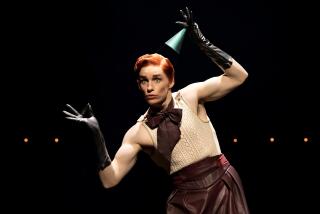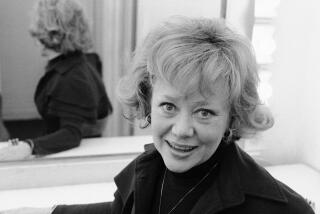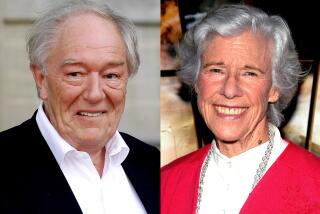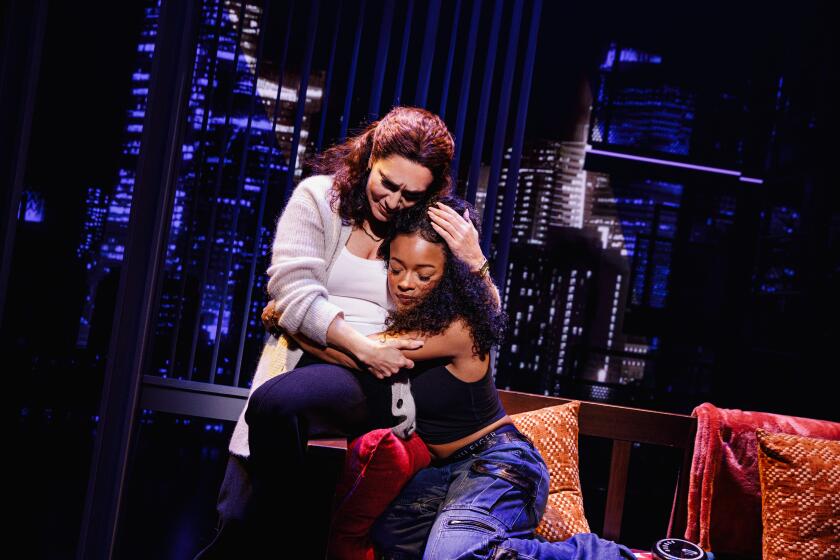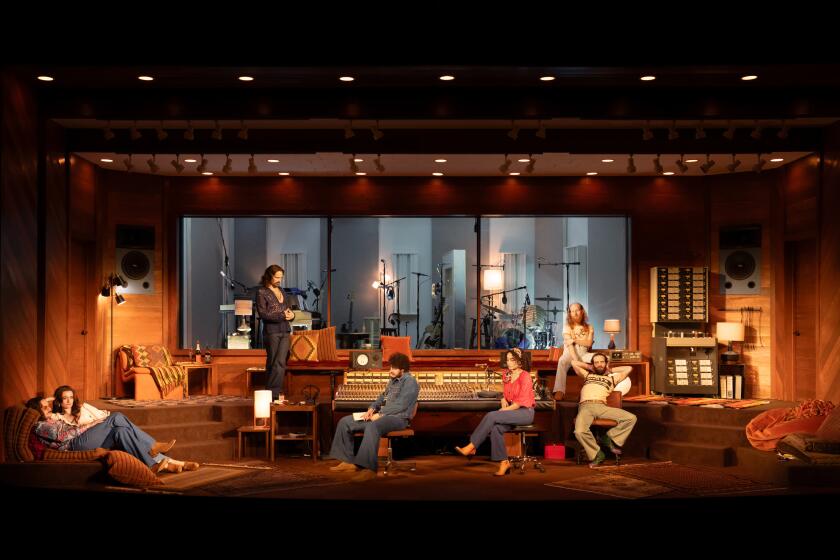Appreciation: From ‘Cabaret’ to ‘Phantom of the Opera,’ Hal Prince made the musical modern
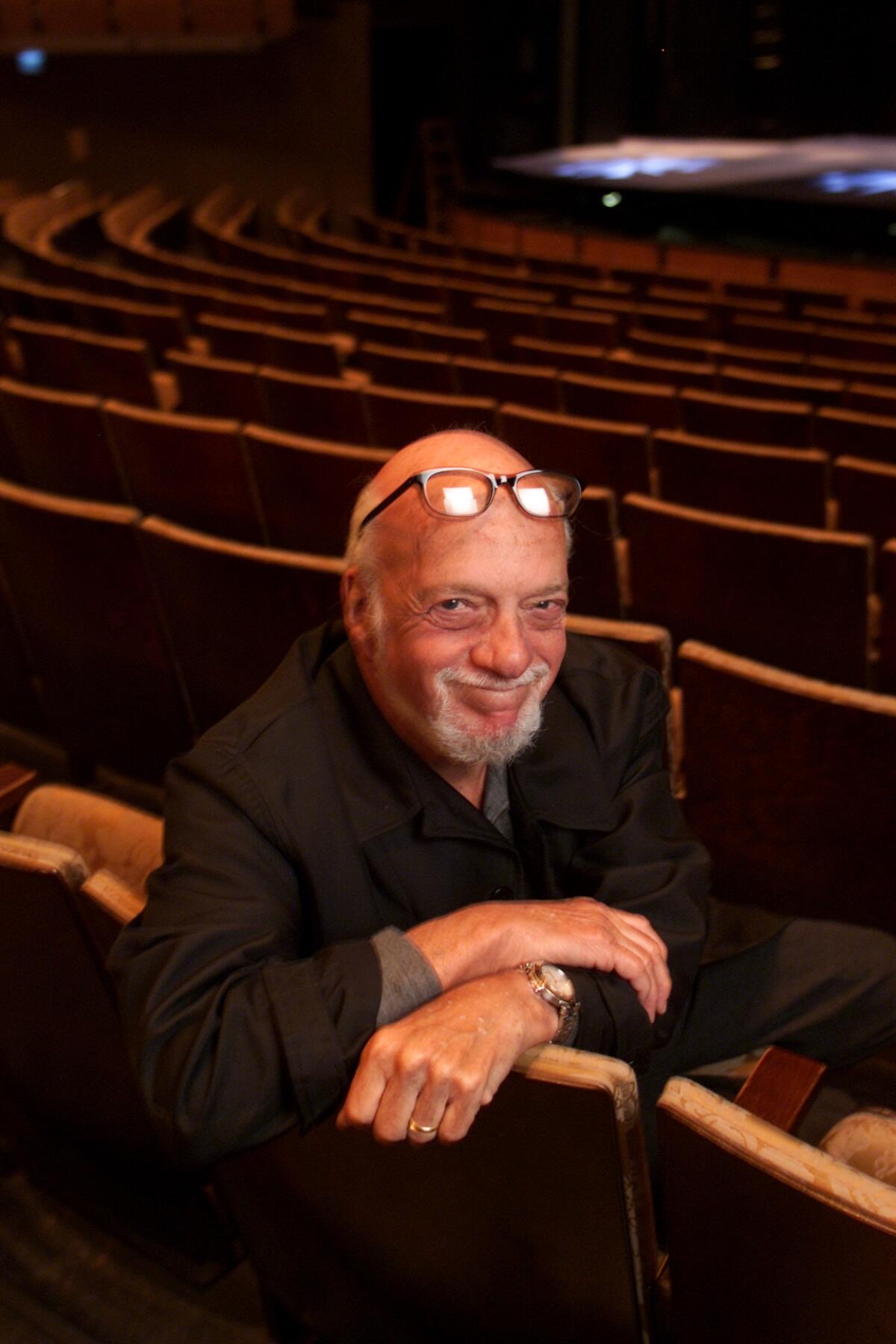
It’s no exaggeration to say that Broadway director and producer Hal Prince made the musical modern. When the Golden Age was in danger of losing some of its luster, he reinvigorated the art form with sex, politics and a conceptual sleekness that seized the imagination of a more liberated generation.
No figure in Broadway history had a bigger influence on how shows looked and behaved in the second half of the 20th century. Prince, who died Wednesday at age 91, directed a series of groundbreaking shows whose productions were inseparable from their authorship. The breathtaking list includes “Cabaret, “Company,” “Follies,” “A Little Night Music,” “Candide,” “Sweeney Todd,” “Evita” and “The Phantom of the Opera.”
As a producer, he was just as prolific in turning out landmark works. Having served as an apprentice for the Broadway master George Abbott, Prince earned the first of his 21 Tony Awards working as a producer on two shows directed by Abbott, “Damn Yankees” and “The Pajama Game.” He would go on to be on the producing teams of such musicals as “West Side Story,” “Fiddler on the Roof,” “Fiorello!” and “A Funny Thing Happened on the Way to the Forum” — shows that would have been legacy enough for most Broadway movers-and-shakers, but Prince operated on a superhuman scale.
In the period defined by two composing titans of vastly different stripes, Stephen Sondheim and Andrew Lloyd Webber, Prince was the indispensable force elevating them to new artistic heights. His work with Sondheim certified his genius. Lloyd Webber ensured a future without financial strife. This distinction is perhaps best illustrated through “Follies,” the Sondheim show that (by Prince’s own admission) “lost all the money invested in it” but sealed his legend as a director.
Possessing one of the sharpest minds in the business, Prince was one of its gruffest truth-tellers. He knew what he knew as well as what he didn’t. He would have liked to have directed “West Side Story,” but he recognized the musical required a director with the choreographic brilliance of Jerome Robbins.
He joked that he would have “screwed up” “Hello, Dolly!” by asking questions a musical comedy of this sort would rather not be asked. When composer Jerry Herman came to his office to play the score, Prince objected to one of the show’s signature lines: “It’s so nice to have you back where you belong.” Having directed “The Matchmaker,” the play upon which “Hello, Dolly!” is based, Prince barked, “Did you read the play? She was never there. The idea is that this is a whole new life that she’s grabbing before it’s too late.” Herman, Prince recalled in an interview in “The Art of the American Musical: Conversations With the Creators,” “gently folded his music and left the office.”
But when the material was right, Prince was the creative partner that could transform a germ of an idea into a blockbuster for the ages. With his background as a producer, it was only natural that he would insert himself into the writing process as a director. He was as concerned with dramatic structure as he was with the sets. Indeed, one of his distinguishing attributes as a director was in fashioning theatrical environments that determined how a story would unfold, as in the way past and present overlap in the ghost-filled Weismann Theatre of “Follies.”
In forging a new tradition, Prince acknowledged that he had to break the back of the old one. Sure-fire formulas of the past had lost their potency. His early box office flops, which would probably be disqualifying in today’s ruthless Broadway economy, paved the way for “Cabaret.” The clash of egos in the struggle to achieve something bracingly innovative wasn’t for the timorous. The phrase “control freak” might have been coined expressly for his directing style.
Collaborators, such as John Kander and Fred Ebb and Jerry Bock and Sheldon Harnick, tied themselves to him despite the Sturm und Drang because they saw that he was as driven as they were to get the work right. Performers with their own formidable gravity obediently orbited around his sun, confident that he knew best how to illuminate their talents.
Prince often talked about “solving” a show, as though musicals presented a mathematical mystery that could be worked out with enough intellectual inspiration and time — resources not always sufficiently accommodated by Broadway schedules and budgets. One show he regretted not being able to figure out was Sondheim’s “Merrily We Roll Along.” The score captivated him, but the structure defied his ability to locate a unifying flow.
The disappointment marked the end of one of the most fruitful relationships in Broadway history. But after a two-decade hiatus, Sondheim and Prince reunited with “Bounce,” a musical that has been kicking around under different titles, still trying to find the key that will unlock its treasure.
In “Original Story,” playwright Arthur Laurents identified what made Prince and Sondheim perfectly suited as creative partners: The love of their life was the theater, “which each was determined to take over and make over in his own way.”
Prince succeeded as only he could — with pioneering vision, volcanic ardor and unprecedented artistry. In changing the course of Broadway history, he contributed to the vitality the theater enjoys today through the artists and producers he inspired and encouraged along his path-breaking way.
More to Read
The biggest entertainment stories
Get our big stories about Hollywood, film, television, music, arts, culture and more right in your inbox as soon as they publish.
You may occasionally receive promotional content from the Los Angeles Times.
